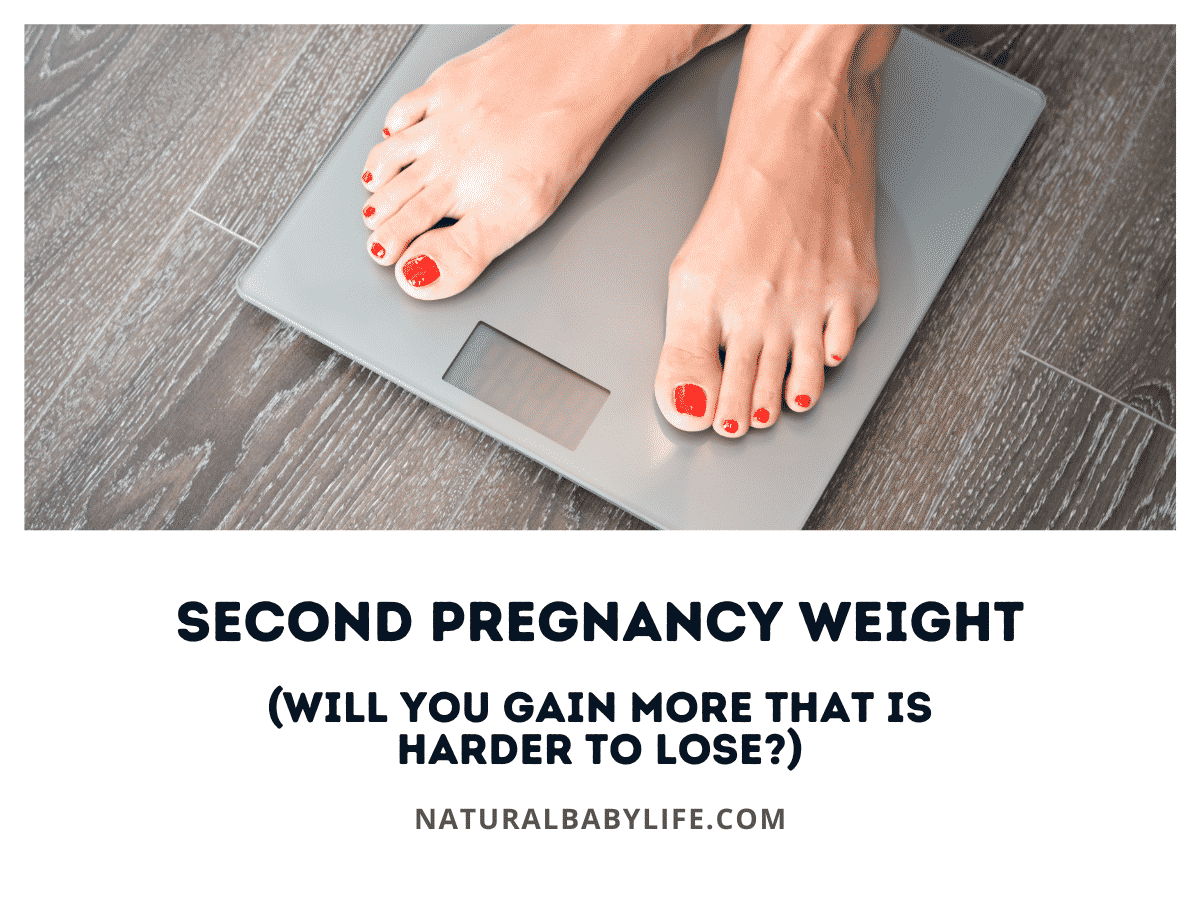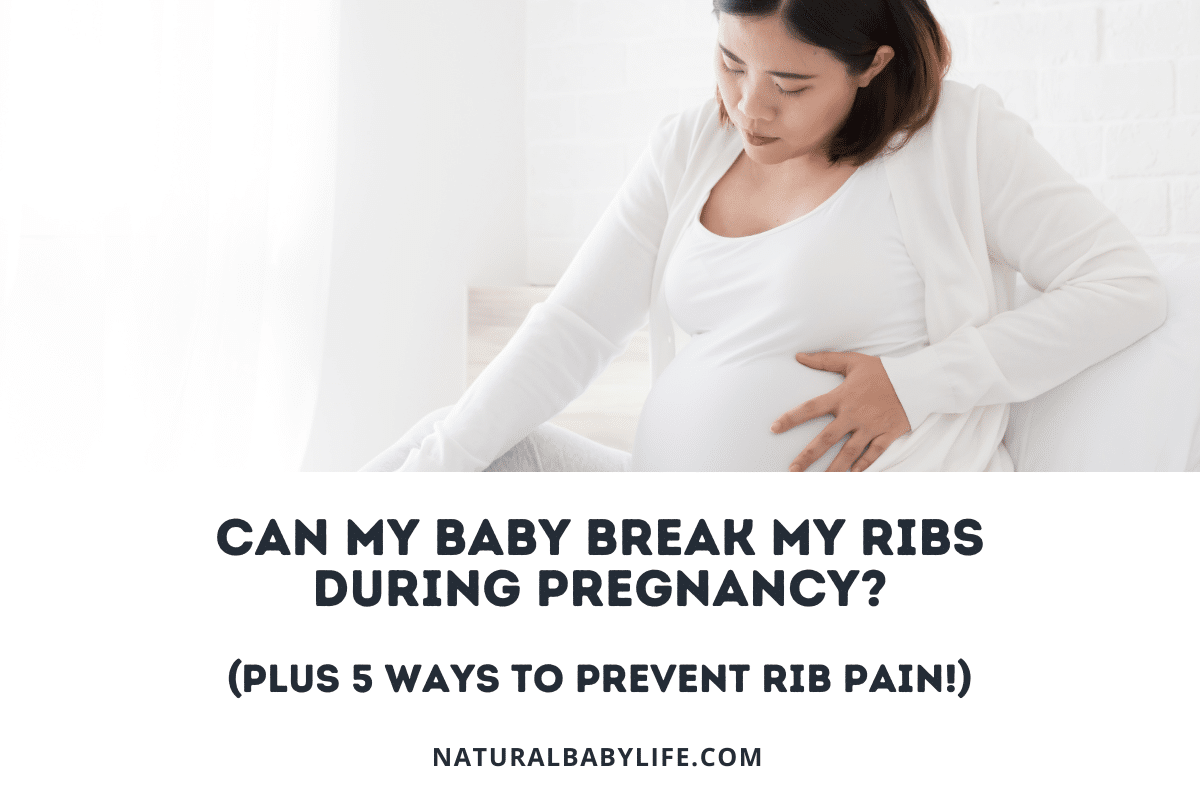Many mothers feel better prepared for their second pregnancy; after all, they’ve been through it all before. Even though second-time mothers certainly have more insight, they are often concerned about gaining more weight this time around than they did for their first baby.
Some studies suggest a mother will gain about the same amount of weight in her second pregnancy as her first; however, many factors influence weight gain during pregnancy. Differences in weight gain may or may not be intentional and can be influenced by pre-pregnancy weight, hormones, sex of baby, diet, and activity level.
Keep reading to learn more about weight gain during your second pregnancy, how it affects the health of your pregnancy, and how it may differ from your first pregnancy.
Table of Contents
Is weight gain different between first and second pregnancies?
Gaining the appropriate amount of weight during pregnancy is key for maintaining a healthy pregnancy and delivery. Though weight gain can vary between a mother’s first and second pregnancies, weight gain recommendations do not change based on the number of pregnancies you’ve had.
The amount of weight you gained during your first pregnancy is a good indicator of how much weight you will gain for your second pregnancy. Research shows that weight fluctuations tend to repeat in a mother’s second pregnancy, especially in mothers that are a “normal weight” (defined as having a BMI under 25).
Though it is common to experience a similar weight gain in your second pregnancy to your first pregnancy, there are many factors that may cause your weight gain to deviate from this trajectory. These may include:
- A different pre-pregnancy weight
- Changes in hormones and metabolism
- Diet
- Activity Level
- Sex of baby
According to the Center for Disease Control (CDC), 48% of women gain more than the recommended amount of weight during pregnancy and 12% of women gain less. Both carry their own risks.
Risks of Inappropriate Pregnancy Weight Gain
Is it normal to gain more weight during a second pregnancy?
Gaining more weight during your second pregnancy is not abnormal. It is important to remember that every pregnancy is different.
Though your first pregnancy may be a good indicator of how much weight you will gain, it is by no means conclusive. Differences in your hormones between pregnancies may cause a change in appetite and cravings, which can influence weight gain. These hormones can even be influenced by the sex of your baby.
In addition, according to Firstcry Parenting, some mothers begin gaining weight earlier in their second pregnancy because their bodies recognize pregnancy hormones sooner. This can result in increased total weight gain.
An expecting mother’s lifestyle can also greatly affect pregnancy weight gain. Some women may find that they had more time to focus on preparing healthy meals and staying active before they had their first child. Proper nutrition and exercise tend to be lower on the priority list during second pregnancies, resulting in more weight gain.
Second pregnancy weight gain chart
It’s incredibly common for pregnant women to feel hungry much more often than they did previously, and they’ll often claim to be “eating for two,” but it’s important to resist cravings for sweet treats and to remember that you’re not eating for two fully grown people!
Depending on your starting weight, you should expect to gain 15-40 pounds during your pregnancy (make that 25-62 if you’re carrying twins), but you’ll shed much of that shortly after the birth.
Here are the weight gain recommendations based on BMI:
Recommended Weight Gain Based on BMI
| Pre-pregnancy weight | Weight Gain Recommendation - Single Pregnancy | Weight Gain Recommendation - Twin Pregnancy |
|---|---|---|
| Underweight (BMI less than 18.5) | 28-40 pounds | 52-62 pounds |
| Normal Weight (BMI 18.5-24.9) | 25-35 pounds | 37-54 pounds |
| Overweight (BMI 25.0-29.9) | 15-25 pounds | 31-50 pounds |
| Obese (BMI 30.0 or greater) | 11-20 pounds | 25-42 pounds |
For an expecting mother with a normal pre-pregnancy weight, the American Pregnancy Association suggests the following weight gain per week by trimester:
- First Trimester (0-13 weeks) – 1-4 pounds TOTAL
- Second Trimester (14-26 weeks) – 1-2 pounds per week
- Third Trimester (27-40 weeks) – 1-2 pounds per week
Can you gain less weight during your second pregnancy?
Some mothers report gaining less weight during their second pregnancy.
This difference may result from a variety of factors, including:
- Hormones – Each pregnancy is different. Changes in hormones can influence cravings and appetite, which may be different from one pregnancy to the next.
- Pre-pregnancy weight – Many women experience difficulties shedding their baby weight from their first pregnancy. Women who start at a higher pre-pregnancy weight may gain less weight during their pregnancy.
- Intentional changes to diet and exercise – Some mothers who struggled with excessive weight gain and weight retention from their first pregnancy may make conscious changes during their second pregnancy, like having a more healthy diet and staying more active, to avoid gaining more pounds than needed.
Do you gain more weight with a boy or girl?
The sex of the baby you are carrying may actually influence your gestational weight gain. Data regarding the relationship between weight gain and sex were collected on 68 million births over 23 years. Analysis of this data showed that carrying a boy was associated with greater weight gain.
- Of mothers that gained 20 pounds, 49 percent were carrying a boy.
- Of mothers that gained 40 pounds, 52.5 percent were carrying a boy.
- Of mothers that gained 60 pounds, 54 percent were carrying a boy.
Though the reason for this correlation is not fully understood, it may be due to the fact that male embryos and fetuses have higher metabolic activity, requiring more calories.
Male fetuses may also be more susceptible to complications due to low gestational weight gain.
When do you start gaining weight in the second pregnancy?
The speed at which you gain weight during your second pregnancy may differ from that of your first pregnancy.
This may be due to the fact your body has already gone through the hormonal and metabolic changes that come along with pregnancy, so your body recognizes these changes sooner.
Despite differences between pregnancies, an expecting mother’s recommended weight gain trajectory does not change unless she changes weight categories (i.e. normal weight to overweight).
Is it normal to get bigger faster with a second pregnancy?
Some women notice that they get bigger faster during their second pregnancy. If you are on track to gain more weight in your second pregnancy, you will likely notice your body changing earlier in your pregnancy.
Aside from the potential extra pounds, most women notice their bump popping much earlier in their second pregnancy. In their first pregnancy, expecting mothers tend to “show” early in their second trimester; however, in their second pregnancies, it is not uncommon to have a bump in the first trimester.
This is due to the fact that your abdominal and uterine muscles have already by stretched out from your first pregnancy.
Is it harder to lose weight after a second pregnancy?
Some mothers have a more difficult time losing their baby weight after their second pregnancy.
This may be due to:
- A lack of time for themselves
- A higher pre-pregnancy weight
- Changes in hormones and metabolism
Why is it harder to lose weight after a second baby?
Making time for physical activity can be difficult after your first baby and can feel impossible after your second.
Mothers who are unable to make time for exercise may have a more difficult time losing their baby weight. For second pregnancies, some women start at a higher pre-pregnancy weight because of weight retention from their first pregnancy.
According to a study published in Obstetrics & Gynecology, 75% of women were heavier at one year postpartum than they were pre-pregnancy with 47.4% retaining 10 pounds and 24.2% retaining 20 pounds of their pregnancy weight. This extra weight can make it even more difficult to get back to your “normal” weight.
Changes in a mother’s hormones and metabolism can make shedding baby weight more difficult. These changes may be caused by pregnancy or age. Research showed that women under 30 were able to lose their baby weight by 18 months; by contrast, women over 30 retained 5 pounds, and women over 40 retained 10 pounds.
How to lose weight after a second baby
Losing pregnancy weight is difficult for most mothers, and it can be especially difficult once you have multiple children.
Here are some tips to help shed extra pounds after your second baby:
- Breastfeed your baby – One of the many benefits nursing provides is its ability to help mothers lose the baby weight. Nursing mothers burn an additional 300 calories a day.
- Establish a realistic exercise routine – Staying active is one of the best things you can do to help lose excess weight, but it’s not easy with two kids. Go easy on yourself and set easily achievable goals to help stay on track.
- Find a walking buddy – A study published in The American Journal of Maternal/Child Nursing found walking to be the most popular form of postpartum physical activity, and it was especially effective when mothers had a walking partner.
- Maintain healthy eating habits – Though having a healthy diet is important throughout pregnancy; however, when you’re pregnant you probably eat larger portion sizes and may be more likely to satisfy food cravings. Healthy postpartum healthy eating habits include eating more fruits, vegetables, and whole grains, choosing lean proteins, controlling portion sizes, and limiting sweets and salty foods.
- Give yourself time and grace– Keep in mind that you just made human and your body is still recovering. Follow your doctor’s advice on when it is safe to begin exercise and don’t overdo it.
By the way, I’ve put together a MEGA resource on the most common differences between the first and second pregnancy along with frequently asked questions! Check it out!










